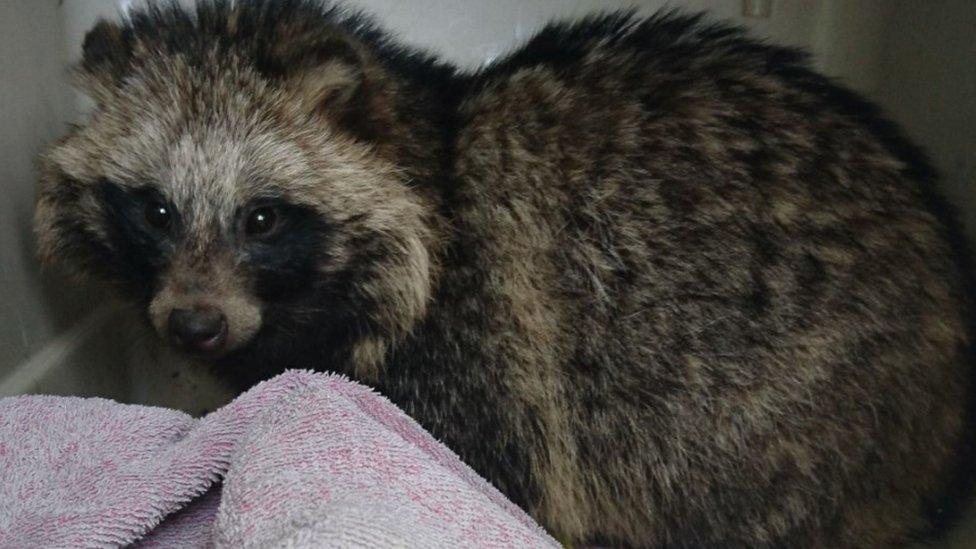Raccoon dogs: What are they, where are they from?
- Published
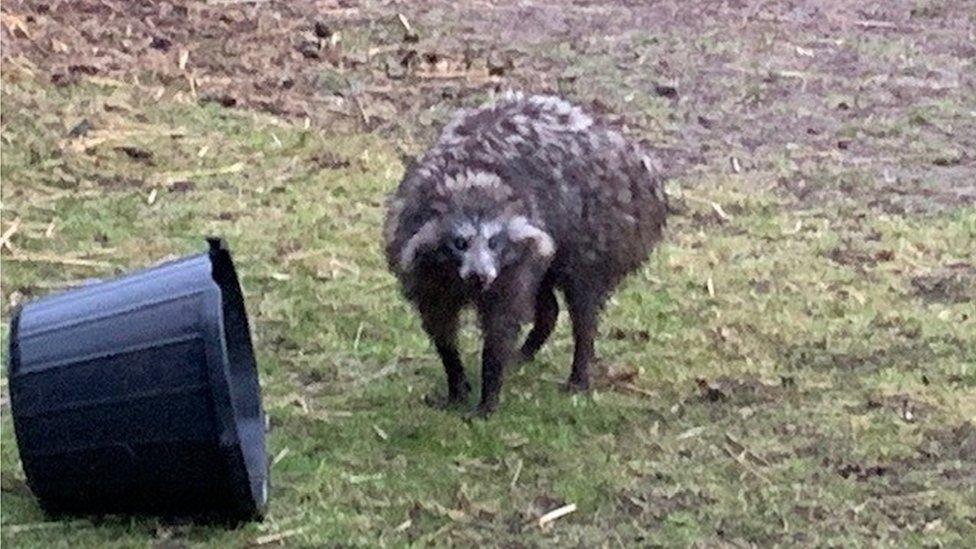
A raccoon dog was photographed after getting into a farm paddock
They were "terrorising", "vicious" and left a village "under siege" - according to some headlines, but what are raccoon dogs really about?
Two of the curious creatures found fame after escaping from an enclosure in a Nottinghamshire village on Tuesday.
After a neighbour said one attacked her goat, media organisations around the world portrayed raccoon dogs as something to be feared.
But are they dangerous? How common? Are they raccoons or dogs?
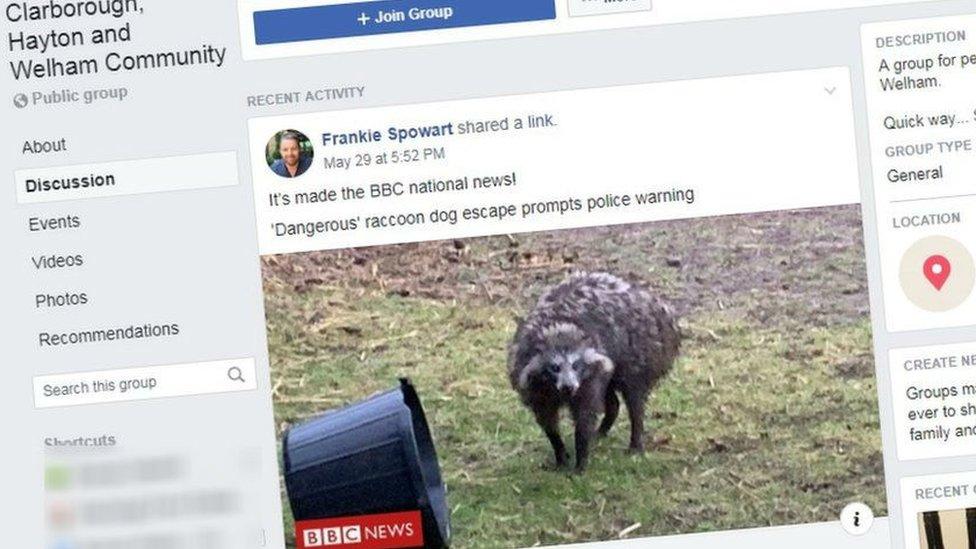
The small village of Clarborough has found itself in the media spotlight
Safe to say, it was a night Clarborough resident Mandy Marsh will not forget in a hurry.
"It was 04:00 and I could hear a wild noise, a noise I'd never heard before," she said.
"My husband went out and was gone for about 10 minutes and he came back and said, 'You've got to see this'.
"He said, 'I don't know what it is, it's like a wild animal attacking the goat'."
The couple fended off the "hissing" creature but not before taking a photo, posting it online and asking if anyone knew what it was.
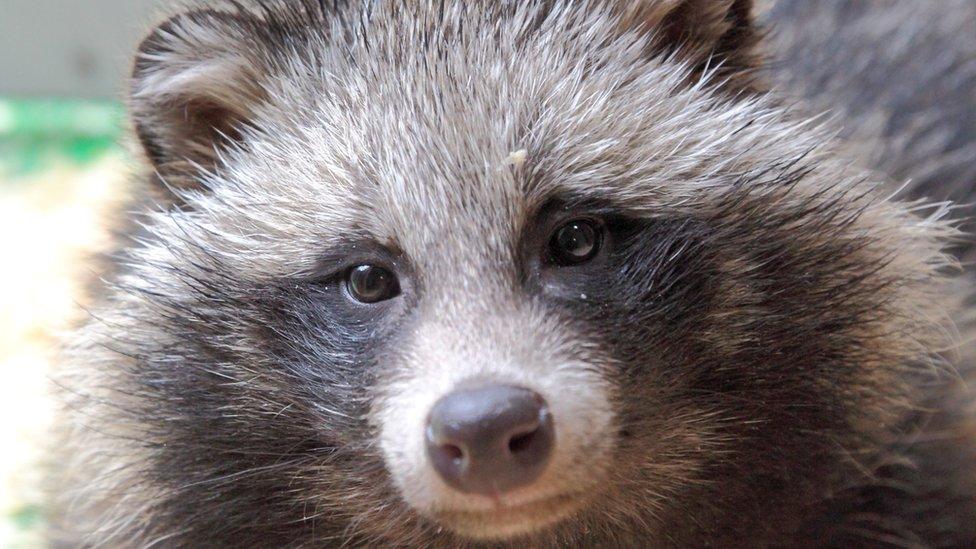
The furry appearance of the raccoon dog persuaded some people to try them as exotic pets
So, what is a raccoon dog?
"A raccoon dog is not a raccoon," said Stephanie Jayson, senior exotics and wildlife trade officer from the RSPCA.
"It's not really a dog either, although it is classified as part of the same canid family.
"The closest comparison is with foxes and badgers - nocturnal mammals who like woods and undergrowth."
Originally from the Far East, raccoon dogs were introduced into eastern Europe as part the fur trade.
Their cuddly appearance meant until recently they were openly traded as exotic pets, which the RSPCA emphasises is a bad idea.
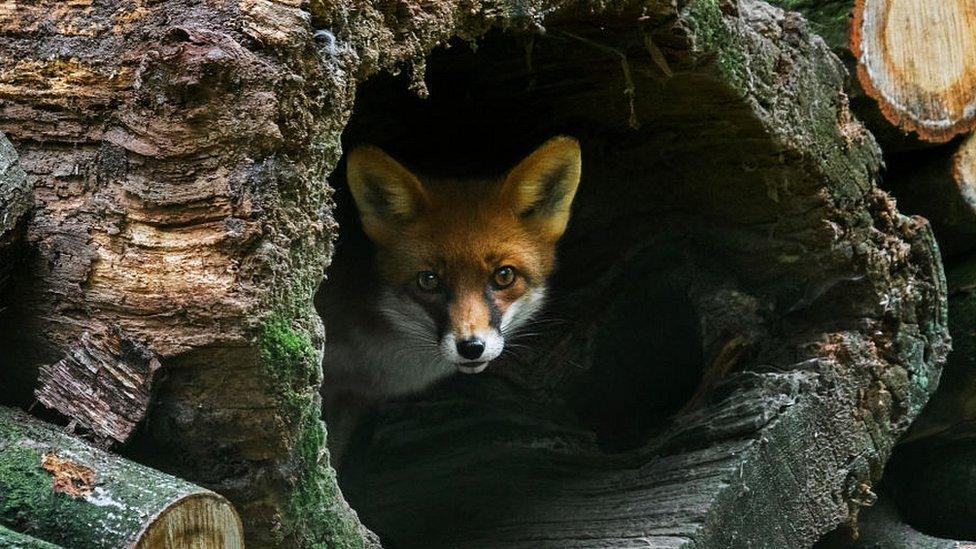
It was feared escaped raccoon dogs would compete with native foxes and badgers for food and shelter
"These are wild animals," said Ms Jayson. "They need large home ranges. We have seen people keep them in houses, with dogs and in small cages, which is not suitable.
"In these cases they often become aggressive and unmanageable.
"And while they are too small to be dangerous, they can bite and scratch."
The number in the UK is not known, but the RSPCA rehomed five raccoon dogs in 2018 and eight in 2017 and has had "a number" of calls this year.
"While the numbers are not great, if they get out, they pose a high risk establishing in the wild," said Ms Jayson.
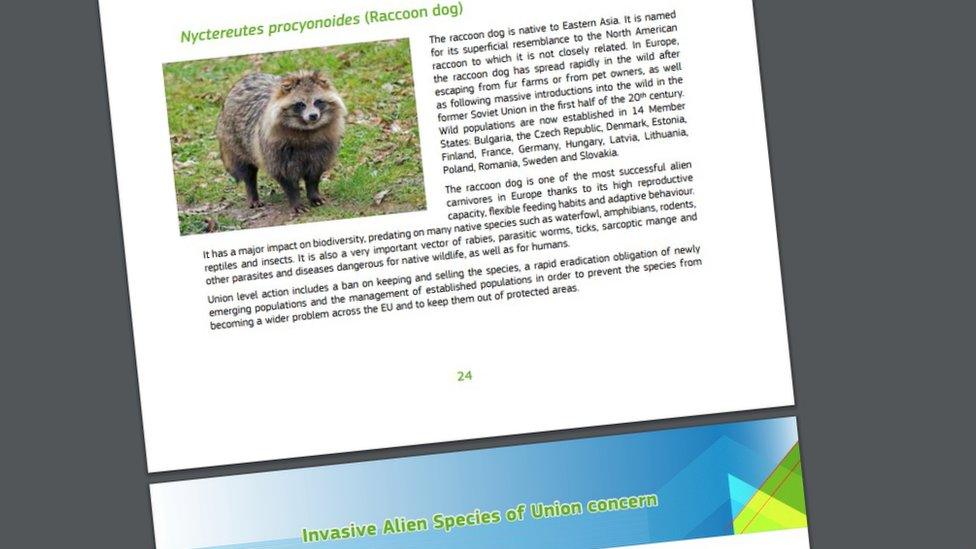
The raccoon dog is described by the EU as "one of the most successful alien carnivores in Europe"
Earlier this year the European Union added raccoon dogs to a list of invasive alien species of concern, external, which seeks to control populations deemed to be harmful to native wildlife.
Existing owners can keep the animals, but further breeding or sale is banned.
Kevin Smith, invasive species programme officer for the International Union for Conservation of Nature, said: "Any populations of raccoon dogs in the wild would compete with native animals, such as foxes, for food and shelter.
"This would also impact on amphibians, birds and small mammals, which the raccoon dogs eat.
"In extreme cases, invasive species are one of the biggest causes of biodiversity loss.
"In some ecosystems, especially islands, invasive species can have a huge impact and even cause extinctions.
"It is much more cost effective for this issue to be tackled early on because if a population becomes established it can be nigh on impossible to remove."
The animals' owner, who did not want to be named, said he was concerned for their safety before they were found.

Follow BBC East Midlands on Facebook, external, on Twitter, external, or on Instagram, external. Send your story ideas to eastmidsnews@bbc.co.uk, external.
- Published31 May 2019
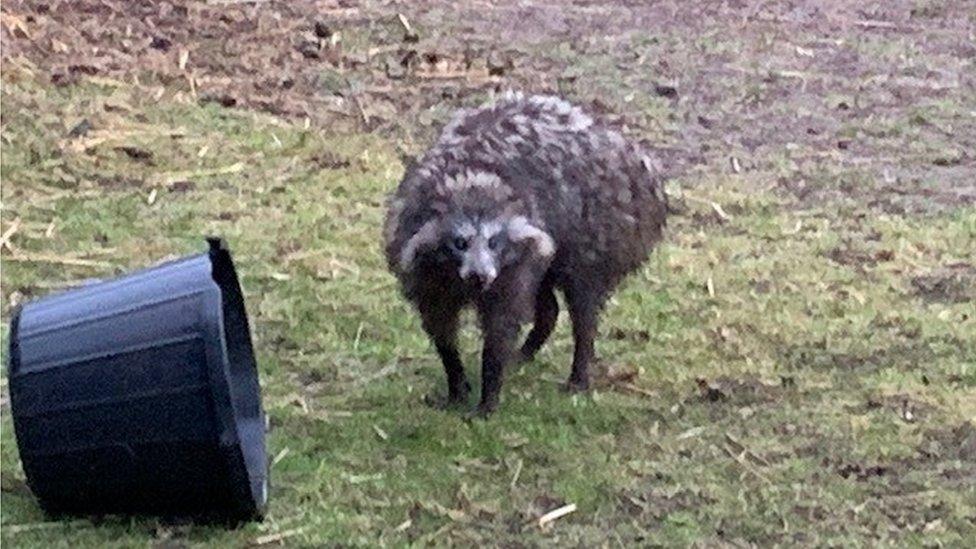
- Published29 May 2019

- Published16 January 2019
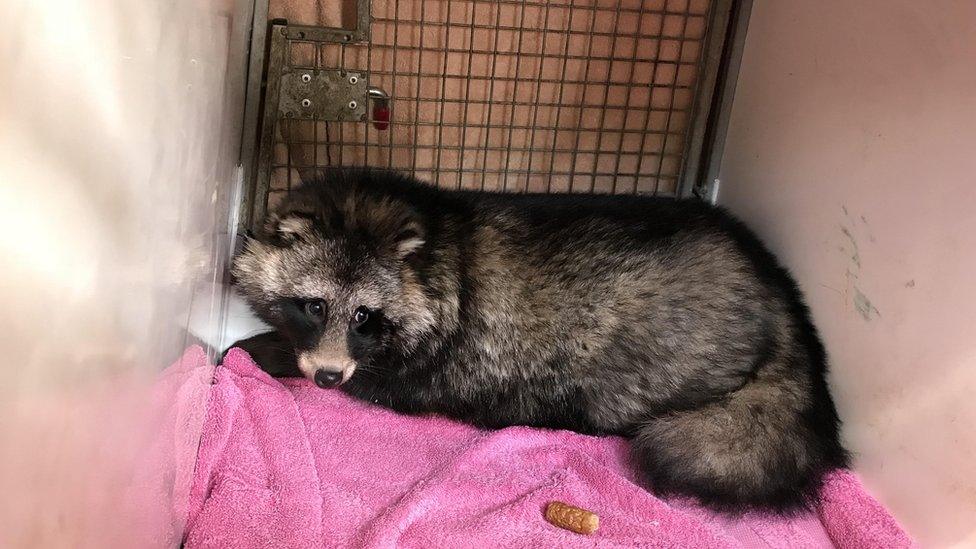
- Published28 April 2017
